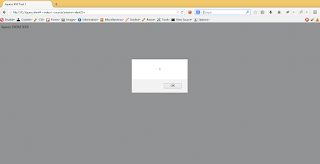Apple Criticised for Not Patching OS X Yosemite Zero-Day Vulnerability
A serious vulnerability present in every iteration of Apple's desktop operating system since OS X 10.7 — one which allows any user process to gain root privileges — was disclosed to the public on Thursday following the release of OS X 10.10.3, which addresses the issue, and users are urged to update as older OS X versions will remain susceptible to attack.
The privilege-escalation vulnerability initially reported on Tuesday by German researcher Stefan Esser, could be exploited by to circumvent security protections and gain full control of Mac computers.
The most worrying part is that this critical vulnerability is yet to be fixed by Apple in the latest release of its operating system.
Users who unwittingly install malware containing exploit code could hand over complete control of their Mac to the attacker, no matter what other security precautions they may have taken.
As a result, OS X users are urged to upgrade to Yosemite version 10.10.3 as soon as possible. Apple will not patch versions older than 10.10, reportedly due to the complexity of the fix.
For users running OS X 10.10, 10.10.1, or 10.10.2, a patch for this bug is included in Security Update 2015-004.
Apple Mac OS X Vulnerability Gives Full Control of your Mac
This environment variable specifies where in the file system an operating system component called the OS X dynamic linker dyld can log error messages.
However, the developers were failed to use standard safeguards that are needed when adding support for new environment variables to the OS X dynamic linker dyld, allowing hackers to modify or create arbitrary files with root privileges.
The privilege-escalation vulnerability initially reported on Tuesday by German researcher Stefan Esser, could be exploited by to circumvent security protections and gain full control of Mac computers.
The most worrying part is that this critical vulnerability is yet to be fixed by Apple in the latest release of its operating system.
Users who unwittingly install malware containing exploit code could hand over complete control of their Mac to the attacker, no matter what other security precautions they may have taken.
As a result, OS X users are urged to upgrade to Yosemite version 10.10.3 as soon as possible. Apple will not patch versions older than 10.10, reportedly due to the complexity of the fix.
For users running OS X 10.10, 10.10.1, or 10.10.2, a patch for this bug is included in Security Update 2015-004.
Apple Mac OS X Vulnerability Gives Full Control of your Mac
This environment variable specifies where in the file system an operating system component called the OS X dynamic linker dyld can log error messages.
However, the developers were failed to use standard safeguards that are needed when adding support for new environment variables to the OS X dynamic linker dyld, allowing hackers to modify or create arbitrary files with root privileges.
"This is dangerous," Esser explained in a blog post, "because it allows to open or create arbitrary files owned by the root user anywhere in the file system. Furthermore, the opened log file is never closed and, therefore, its file descriptor is leaked into processes spawned by SUID binaries. This means child processes of SUID root processes can write to arbitrary files owned by the root user anywhere in the filesystem."
As a result, if exploited, this allows an attacker to easily gain privilege escalation in Yosemite to hijack your Mac computer and take control of your system.


Comments
Post a Comment